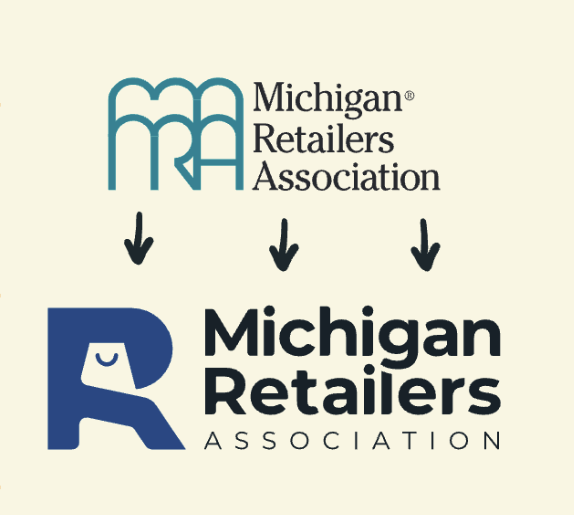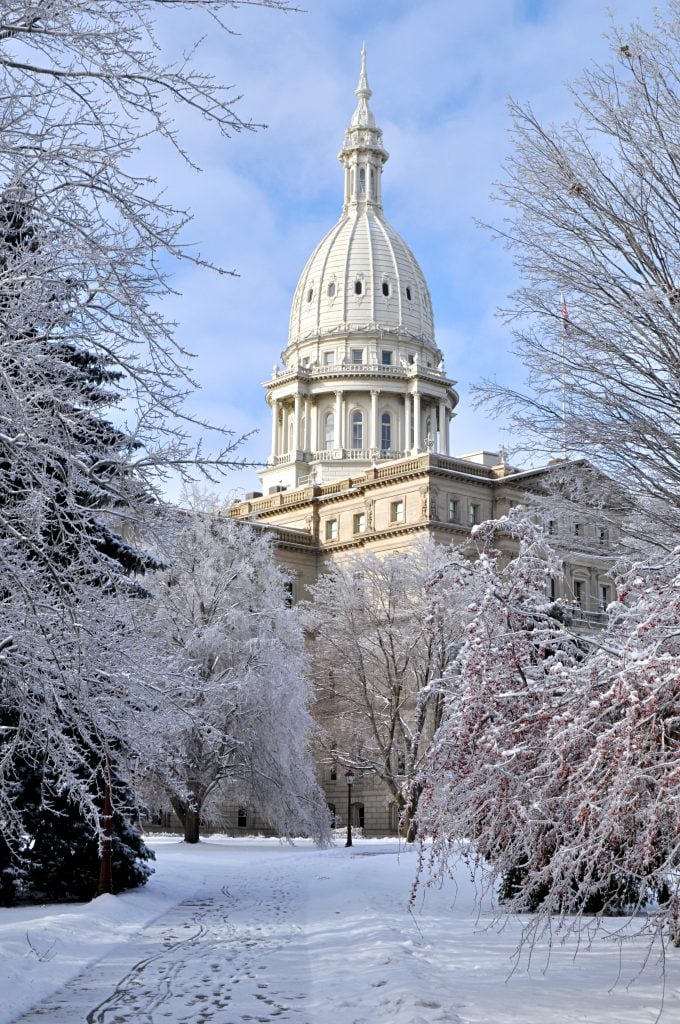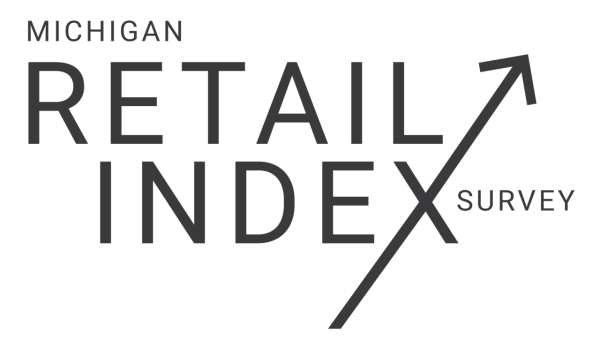House committee quickly reports income tax repeal
After only one committee hearing, the House Tax Policy Committee reported HB 4001 – a bill to repeal the state’s income tax over 40 years. The bill calls for a reduction in the income tax from 4.25% to 3.9% on January 1, 2018, and a 0.1 percentage point decrease in the rate each subsequent year until completely phased out by 2057. The committee heard testimony from supporters and opponents but did not discuss how the lost revenue would be replaced or what budget cuts would be needed. The bill sponsor argued increased economic growth will cover much of the cost and there is speculation around town that some of the cost may be covered by cuts to higher education.
In fiscal year 2017-2018, the state would lose $680 million, and $1.1 billion in the 2018-2019 fiscal year, the first full year of implementation. Each subsequent year the state would lose an additional $400 million in revenue. In total, the income tax raises $9.75 billion annually, 18% of the state’s current $54 billion budget. Proponents argue the first reduction to 3.9% on January 1, 2018, fulfills a “broken promise” made by the 2007 legislature that said it would make that decrease by 2015.
Executive budget released
The governor presented his 2017-2018 budget proposal on February 8. The proposal calls for $56.3 billion in spending, a 2.5% increase over the current year. There is some one-time money available, approximately $500 million, that the governor proposes using for deposits in the infrastructure fund and the budget stabilization fund (also known as the rainy day fund) as well as education investments, IT upgrades, talent and economic development, and state park maintenance. Road funding would see an increase, along with $125 million for business attraction. The governor also recommends doubling the low-income children’s school clothing allowance from $100 to $200.
House GOP releases “Action Plan”
House Republicans, the majority party controlling the Michigan House, released their 2017-2018 Action Plan yesterday. The plan outlines very few specific legislative proposals and instead suggests topics the caucus plans to study. They include:
- Reducing auto insurance rates by reforming the state’s no-fault system
- Addressing the growing local government pension and healthcare liabilities
- Reviewing road building regulations and contracting requirements
- Reducing personal income taxes
- Supporting the competitive grant process through the Food & Agriculture Strategic Growth Initiative
- Expanding rural broadband access
- Increasing government transparency through eliminating Freedom of Information Act (FOIA) exemptions
- Streamlining state permitting, limiting extensive and new licensing requirements, and updating the state rulemaking process to increase legislative oversight
- Investing in infrastructure and energy needs
- Improving the Michigan Automated Prescription System (MAPS) to combat opioid abuse
- Improving career opportunities and training in skilled trades.
Former reps appointed to Liquor Control Commission, Lottery Commissioner
The governor appointed former State Rep. Brad Jacobsen to the state’s Liquor Control Commission on Monday and, this morning, former Rep. Aric Nesbitt as the state’s new lottery commissioner. Both reps fulfilled their third and final House term in December.
Mr. Jacobsen, a Republican from Oakland County, replaces Edward Gaffney for a term that expires June 12, 2020. He is vice president of Jacobsen Flowers, a business with three locations in metro Detroit, and served as past chair of the Lake Orion Downtown Development Authority. In the House, he most recently served as chairman of the Communications and Technology Committee and on the Elections, Energy Policy, and Transportation Committees. His appointment is subject to confirmation by the Senate.
Mr. Nesbitt, a Republican from Van Buren County, succeeds M. Scott Bowen. He most recently served as majority floor leader in the House and chairman of the House Energy Committee. He was one of the leading charges behind the energy reform legislation that was approved in December. Prior to serving in the House, Mr. Nesbitt worked as an aide in Congress on the Congressional Natural Gas Caucus and the Congressional Steel Caucus.
Other important items to note:
GROCERY/CONVENIENCE:
- 500-foot rule: Legislation introduced as HB 4169 on February 7 would extend the exemption allowing liquor licenses within 500 feet of church or school to be issued or renewed before March 1, 2017. Under current law, approval of a liquor license within 500-feet of a church or school is prohibited. Recent interpretations have raised legal questions on whether businesses with current liquor licenses are in violation depending on the way the 500-foot rule is enforced. The bill was referred to the House Regulatory Reform Committee and is expected to come up for discussion soon.
- Tobacco sales to minors: The Senate Judiciary Committee reported legislation on February 7 that would increase penalties for selling tobacco products to a minor, from $50 to $100 for a first violation and $500 for a second or subsequent violation. The bill, SB 74, was amended to clarify that the fine would be assessed on a per location basis for retailers with multiple locations and subsequent violations would only be tracked on an annual basis. MRA is working with other groups on a possible amendment in the House that would add a penalty for the clerk and not just the retailer.
- Dogs at restaurants: SB 122 and HB 4187, introduced on February 9, would allow dogs to be present at outdoor seating areas where food is served if certain conditions and standards are maintained. Local governments could adopt resolutions prohibiting dogs at outdoor seating areas if they choose. The legislation was referred to the Senate and House Agriculture Committees respectively.
LABOR:
- Family leave time: Legislation introduced as HB 4226 on Wednesday would require employers with 50 or more employees to provide four weeks paid leave time for the care of a newborn or adoption of a child if the employee was on the job for 12 months or more and worked at least 1,250 hours during the immediately preceding 12 months. The bill was referred to the House Commerce and Trade Committee.
PHARMACY:
- MAPS prescribing: Legislation to require prescribers to run a Michigan Automated Prescription System (MAPS) report prior to prescribing schedule II-V drugs was introduced as SB 166–167 on Wednesday. The legislation contains penalties for physicians failing to report prescriptions of any schedule II-V substances to MAPS. The penalties include attending certain classes and provide other sanctions under certain circumstances. The bills were referred to the Senate Health Policy Committee.
REGULATIONS
- Drones: Legislation introduced as HB 4248–4249 yesterday would prohibit operating drones within 1,000 feet of a correctional facility, jail, police department, sheriff’s department, state police post or state court building. A violation would result in a misdemeanor punishable with up to a year in jail and a fine up to $1,000. The bills were referred to the House Communications and Technology Committee.
- Fireworks: Legislation to restrict the use of fireworks on certain days and allow local governments to enact ordinances regulating the sale of fireworks from tents was introduced as HB 4196–4197 on Tuesday. HB 4197 would clarify that the Michigan Fireworks Safety Act’s pre-emption of local ordinances only relates to ordinances specifically addressing the sale, display, storage, transportation or distribution of fireworks and does not prohibit ordinances regulating the sale, display, storage, transportation or distribution of all goods. The bills were referred to the House Regulatory Reform Committee.
- Fireworks repeal: Legislation that would repeal the Michigan Fireworks Safety Act that allows for the sale of consumer grade fireworks was introduced yesterday as HB 4244. A companion bill, HB 4245, also would repeal the corresponding sentencing guidelines for violations of the Michigan Fireworks Safety Act. The bills were referred to the House Regulatory Reform Committee.
- Gift cards: Legislation seeking to treat a prepaid discount card or program as a gift certificate and also prohibit expiration dates on gift cards was introduced as HB 4193–4194 on February 9. The bills were referred to the House Financial Services Committee. MRA was very engaged in discussions on gift card regulations in the past and will monitor this legislation closely. At this time, there is no indication the legislation will come up for a hearing.
- Sky lanterns: HB 4246, introduced yesterday, would prohibit the use or sale of sky lanterns. The bill was referred to the House Regulatory Reform Committee.
TAXES
- Sales tax on trade-in price difference: Legislation that would eliminate limitations on sales tax on the difference legislation up to $2,500 was introduced on February 9 as SB 125 and referred to the Senate Finance Committee. The bill speeds up the phase-in of legislation approved in 2013 that allows car dealerships to only charge sales tax on the portion of the vehicle purchase paid with cash or credit. Previously, dealerships had to charge customers sales tax for the full vehicle purchase, including the portion paid with the value from a trade-in vehicle.
OTHER
- Auto theft prevention: Legislation introduced as SB 168 on Wednesday would expand auto-theft prevention authority assessments to commercial vehicles. The bill was referred to the Senate Insurance Committee.
- Installation of nonoperative air bags: HB 4172, introduced on February 7, would prohibit the installation of a nonoperative air bag. Violations would be punishable by fines of up to $5,000 and a year in jail. The bill was referred to the House Law and Justice Committee.






